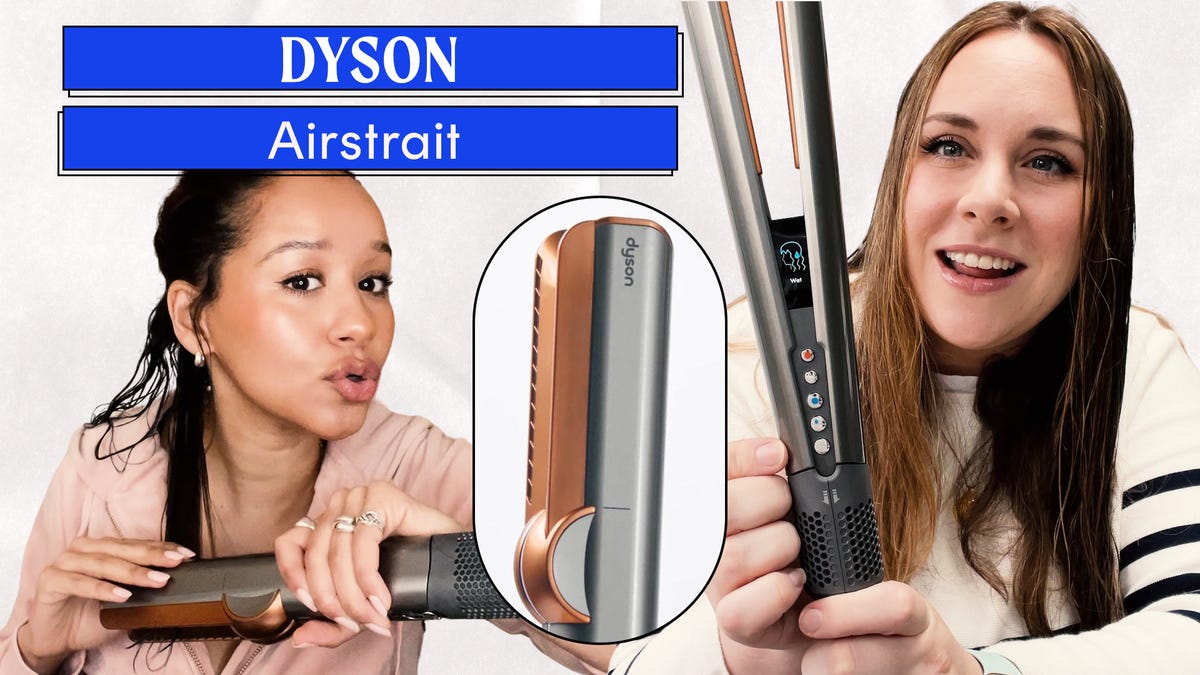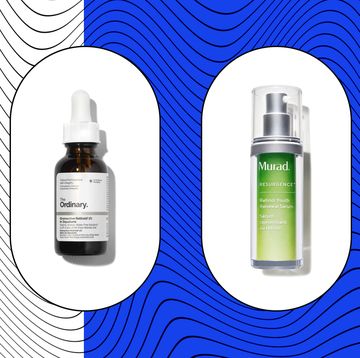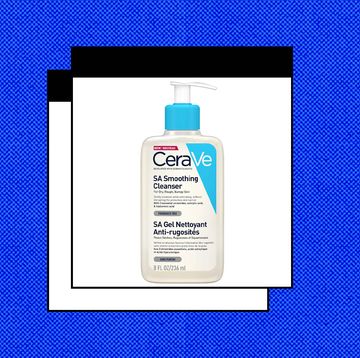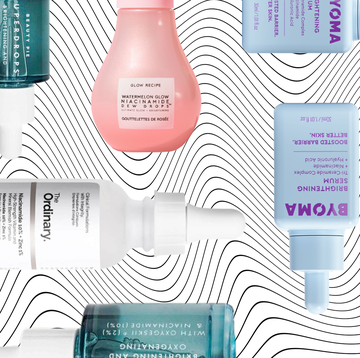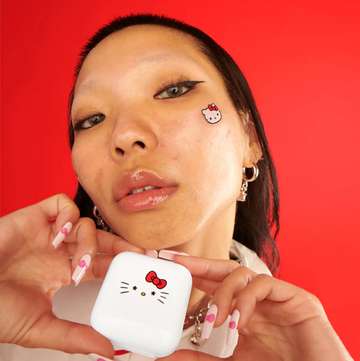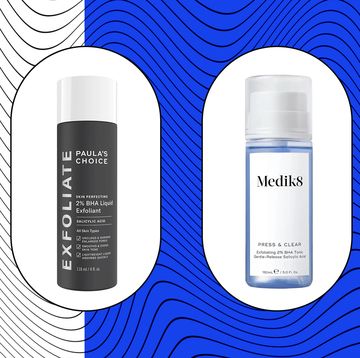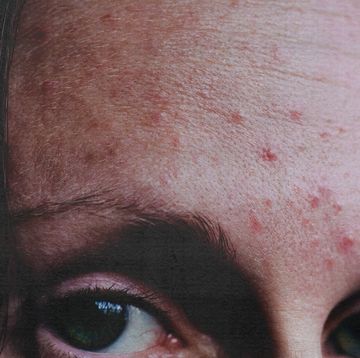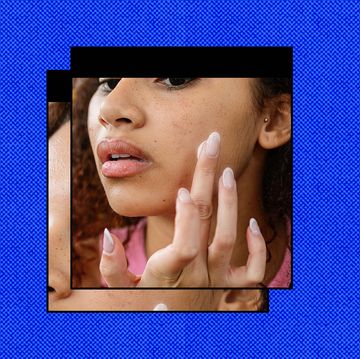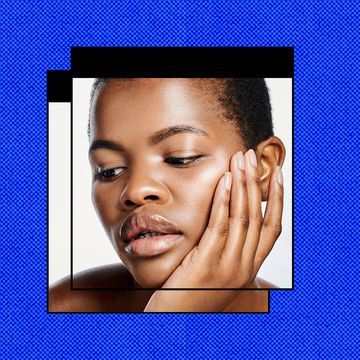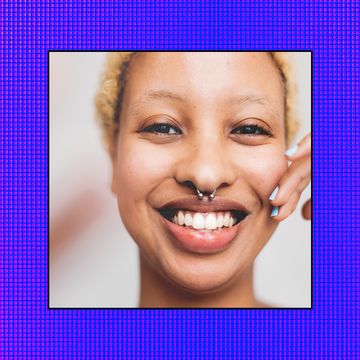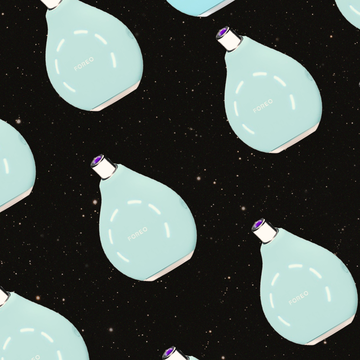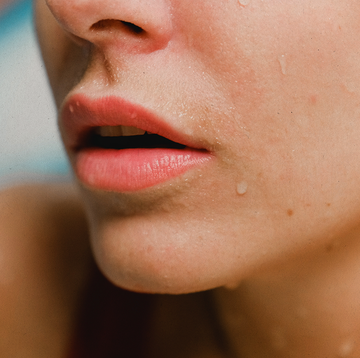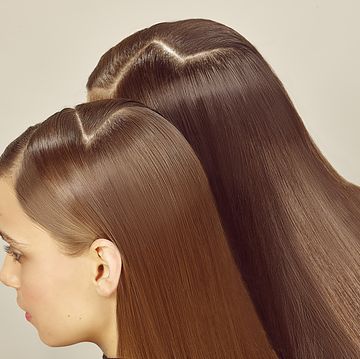Since a young age, I’ve been pretty fortunate with my skin. I have been lucky enough to forgo issues such as rosacea or teenage acne, and I’m confident in my good genetics. However, that’s not to say I don’t experience problems – they’re just ‘man-made.’ In other words, said problems (usually blemishes and red marks/scarring) are caused by me, picking away at the tiniest pore to a point where it has transformed into a welting open wound. Yes, I have a skin picking disorder – otherwise known as Dermatillomania – and it’s greatly impacted the quality of my skin, as well as my confidence and mental health.
Put simply, skin picking “is when a person compulsively picks or scratches their skin, causing injuries or scarring,” according to Dr Sonia Khorana, Cosmetic Doctor & Dermatology Expert. “It can be nearly impossible to control the urge to pick or scratch skin. It can create new wounds or reopen old ones, leading to bleeding and scarring.” Research has shown that skin picking occurs more often in women, and it can develop at any point of life. There are a multitude of reasons why someone will begin to skin pick, but causal factors can include “genetic predisposition, disruption of common grooming behaviours and environmental factors (stressful events),” notes Lydia Johnson, hypnotherapist and founder of London Clinic of Hypnotherapy, who commonly meets clients with Dermatillomania.
Seeing past the picking
One thing that has become abundantly clear to me is this is less of a ‘cosmetic’ surface-level skin issue and more of a mental health one. Lydia agrees, noting that “skin picking is one in a set of disorders categorised as Body Focused Repetitive Behaviours, which occur on the Obsessive Compulsive spectrum.” She explains that stress and anxiety are huge causal factors in skin-picking patients (“stress tends to reduce our ability to be in control and increases our focus on short-term relief from the unpleasant impacts on mind and body”) but really, it’s a vicious circle. Not only can poor mental health result in skin picking as a coping mechanism, it also worsens said mental health (causing shame and isolation, frustration, anxiety and low self-esteem), which then encourages picking once more, and so the problem continues. “It creates a vicious cycle, as the skin picking has a negative effect on relationships, work and overall quality of life, which often leads to more skin picking to alleviate the uncomfortable feelings being experienced,” says Lydia.
True to this pattern, skin picking for me is both a symptom of my OCD and anxiety, and a cause for it. Just as completing checks around the house and seeking reassurance from others does, picking temporarily eases my anxiety and gives me an outlet to take out any worries. It acts as a distraction, too; just as my bad habit of TikTok doom scrolling does. But once the initial ‘hit’ subsides, I do begin to feel awful; I hate the spots and scarring I alone have caused, and begin to feel bad about the reasons for doing it in the first place. As a beauty editor who loves being complimented on her skin, too (in an industry where achieving that ‘glow’ is covetable), it’s difficult to contend with.
This is why I wanted to try hypnotherapy. I’ve tried to stop myself (even putting plastic bags over my light-up magnifying mirror so I can’t access it), but sadly, nothing really sticks. I knew it was important to achieve a change in mindset, rather than finding ways to avoid doing it. Experts agree, too, that hypnotherapy can be a great treatment for those with skin picking. “It can interrupt that familiar urge to pick, helping you regain control and increase your awareness and ability to choose more beneficial responses,” says Dr Sonia.
So how exactly does it work? Regarding the process, Lydia explains that, “in the deeply relaxed state of hypnosis, your subconscious is more receptive to revising thoughts and actions.” This allows you to be far more aware about how your skin picking operates, identify triggers, and develop new, personalised responses to them that do not involve this habit. Hypnotherapy also helps with calming and relaxing the body and the brain, so has an overall positive impact on your state of mind.
Trying hypnosis
My experience started with a two-hour conversation with Lydia. She wished to find out more about my life and the reasons I had turned to skin picking. I felt incredibly safe in this space, and despite never getting emotional in traditional therapy, I cried a record three times in her presence. My comfort in her office – I believe – helped me to become my most vulnerable, malleable self for treatment. What became apparent quickly was that (as I had thought), this was way more of a mental health-related issue than a skin one. Lydia confirmed she thought I had burnt myself out with worry over things and therefore my nervous system was ‘frazzled’. She shared tips with me such as creating a daily ritual involving breathing exercises, practising gratitude, and even cold wild swimming (where possible), which could help regulate it and thus, help move me towards being a calmer, less anxious person prone to skin picking as a last resort. She ultimately wanted to move me away from the pattern I had been in, which involved a string of cortisol surges that were impacting my well-being in a number of ways.
Then came the actual hypnotism ‘part’. Lydia lay me down and had me put on headphones, which she soothingly spoke into. She spoke of breaking old patterns and picking better, healthier outlets for my stress, and acting to reduce it in the first place. I’ll be honest though; I can’t tell you exactly what she said as I was in a state I can only describe as between conscious and asleep fairly quickly. I am super sceptical about things like this and always believe my mind is far too ‘busy’ to be susceptible to alternate therapies, but I know I had ‘gone there’ as when I came to, I assumed it had only been around ten minutes, but it had actually been 30. I had successfully been hypnotised.
My task was to then listen to the tape every day for 21-28 days to begin to change my patterns and behaviour. Lydia explained that the audio would “rewire neural pathways, help to let go of outdated subconscious patterns which keep you on a dated loop, and remind you of why you need to uplift your thoughts to create a kind and supportive culture in your head, which alleviates and soothes the nervous system.”
The results...
Three weeks in and I definitely feel calmer and more able to suppress my need to skin pick. This has all happened in a rather unsettling period of my life when I am about to go through some change, so I can’t say this has completely ‘solved’ everything, but it has definitely helped to lead me down a path of prioritising self-care and my own wellness. It has opened up a world where I am finally looking to address some of my ‘issues,’ and instead of heading for the magnifying mirror to take out anxiety, I can better self-soothe. Whereas before I was in a ‘trance-like’ state when I went to squeeze spots, I now stop to actually think about my decisions.
If, like me, you are suffering with skin picking, I’d really recommend giving hypnotherapy a go. Healthcare professionals tend to back it as a legitimate method, but some do suggest giving other techniques or methods a go alongside hypnotism. Dr. Jeannette Graf, Board-Certified Dermatologist, suggests looking into Cognitive Behavioural Therapy (CBT), which is one of the most common talk-based therapies for a variety of mental health conditions, along with something called habit reversal training, which she says is “an evidence-based therapy that helps patients identify the triggers for their unwanted habits, and replace their reactions with a healthier action or coping mechanism.” Opting for a gentle, kind-to-skin topical routine is also important, as is a visit to your dermatologist for advice. And most importantly, remember to be kind to your skin as well as your mind.






